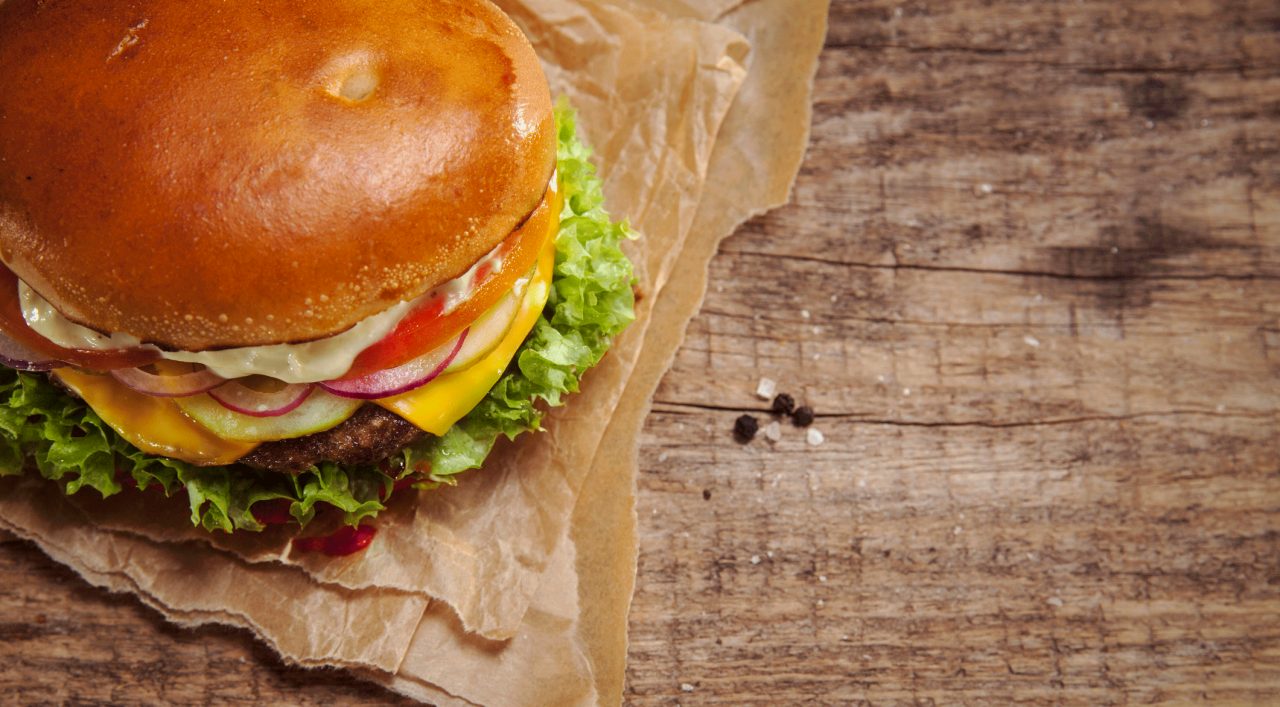Is Fake Meat Good for You?

You're seeing the ads on TV, but are the new alternative meat burgers and sausage patties really good for you? It depends what you’d be eating instead.
Fake (or alternative) meat is made from plant products but designed to taste and feel like a meat. The best-known products imitate a juicy beef burger.
If you’d be eating a burger instead, the fake meat version is probably a better bet for your health. A 4 oz serving of the Impossible Burger, for example, contains about 19 g of protein, the same as in ground beef, but zero cholesterol, compared to 80 mg in a relatively lean burger. It also has 25 percent of the recommended daily value of iron, compared to 9 percent in the burger. There are no antibiotics or animal hormones.
What is it then? The protein comes from soy and potatoes, the fat from coconut and sunflower oil, and the flavor from heme (a molecule that gives meat its taste and makes the product bleed), dextrose (a natural honey), and yeast extract.
YOU MIGHT ALSO LIKE: Protein-Rich Food
The Beyond Burger, a popular rival, has 20 mg of protein and zero cholesterol. The big difference is that it doesn’t contain soy. Its protein comes from peas, mung beans, fava beans, and rice, its fat from coconut and canola oils.
The bad news is that these products contain lots of sodium — more than four times the sodium in a beef burger — and contain as much or more fat, including saturated fat, as a lean burger. They also have artificial ingredients and preservatives.
Recall that they both rely on coconut oil, the only plant-based saturated fat. Coconut oil attracted fans when some research suggested that it was processed differently by the body than saturated fat from meat. However, in 2018, the American Heart Association recommended against eating coconut oil, confirming that it raises artery-clogging LDL cholesterol.
It also matters what you put on your burger. All bets are off if you add mayonnaise, bacon, and cheese. Burger King’s Impossible Whopper comes with mayo and is cooked on grills alongside beef.
In short, you’d be better off not eating a heavy saturated fat burger, whether plant- or meat-based. You might argue that the plant-based burger didn’t require the death of a cow or put the same burden on the planet — but that’s not the same as being healthy for you.
Let’s say you ate a plant-based burger that wasn’t loaded with fat so it tasted like meat. Research shows that vegetarian diets lower your risk of heart disease, diabetes, obesity, and certain kind of cancer. Switching to the Ornish vegan diet — which contains no products from an animal like milk — can cut your total cholesterol, triglycerides, LDL cholesterol, and inflammation within a month.
What’s next: There’s yet another kind of beef alternative coming. This time the beef will be grown from cow cells in a factory, not the product of a slaughtered cow. That’s good for cows and probably the planet, but possibly not that different for you.
According to the Good Food Institute, which promotes alternatives to meat, in 2019 we got new plant-based breakfast items, jerky, bacon, and seafood. You can expect to see more seafood options this year. You also may see more products containing fermented plants, yeasts, and mushrooms intended to suggest the taste of meat. Some companies may even use 3-D printing for production.
Just remember that any product containing saturated fat may be bad for your overall health and, in general, when we eat processed food, we tend to overeat.
Updated:
March 23, 2020
Reviewed By:
Janet O’Dell